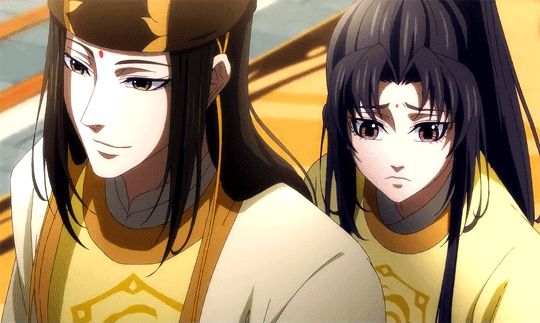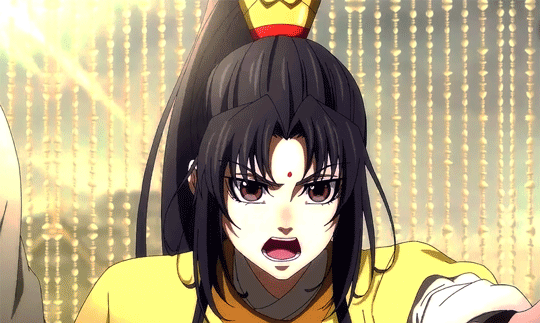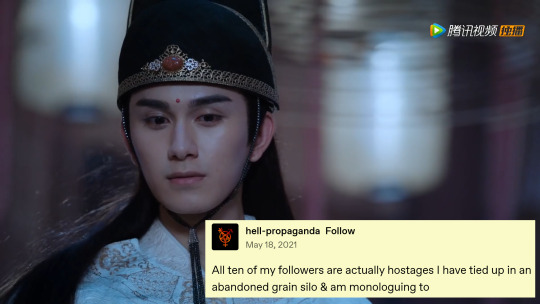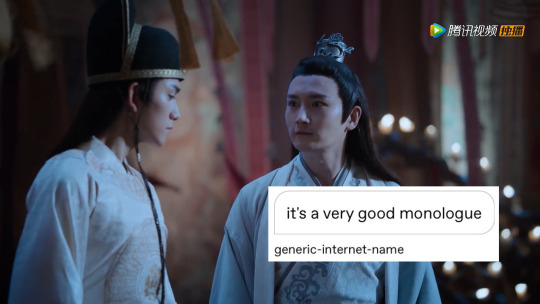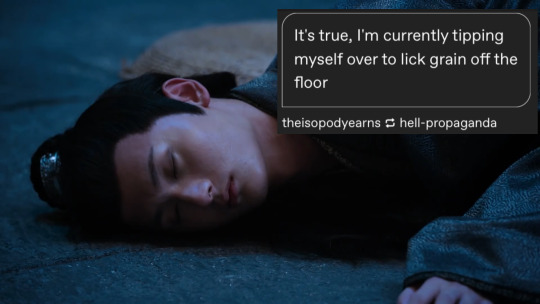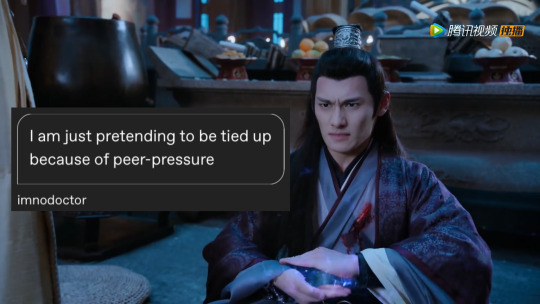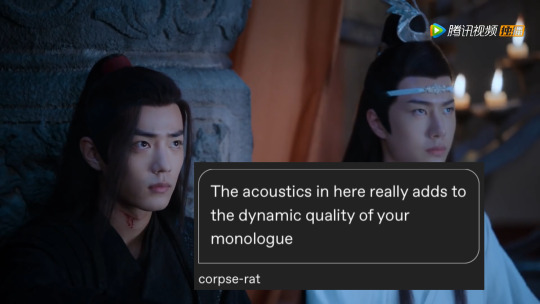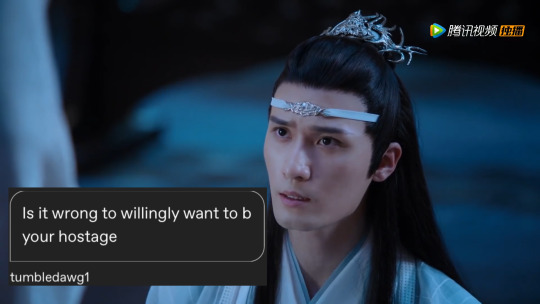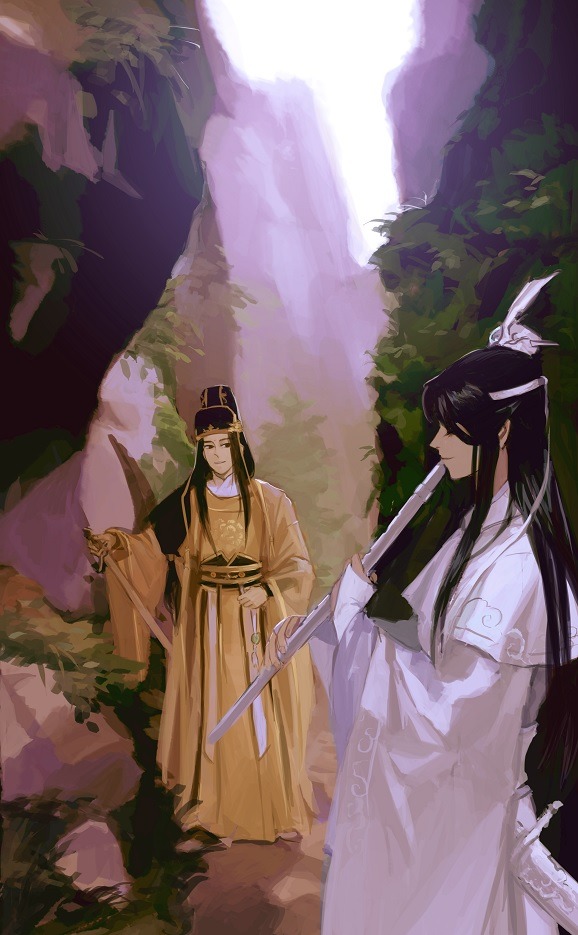Text
“The Concept of Chinese Xia侠 The xiá (俠) is a Chinese term and concept that refers to a righteous person who excels in Chinese martial arts and who uses their armed expertise to protect the innocent and right social unfairness or injustice (鋤強扶弱). Such a person is said to possess “martial virtue” (wǔ dé 武德), and usually regarded as a people’s champion. The xiá concept is the basis for the Wuxia genre of Chinese literature and cinema, and is fundamental to the understanding of the genre. Liang Yusheng, a founder of the post-war “new school” wuxia literature, once asserted: “I’d rather write a wuxia story with no force or martial arts, than to devoid them of the spirit of xiá (宁可无武,不可无侠)”. Cultural correlations Xiá could be roughly compared to “chivalry” or ‘heroes/heroines", and similar in part to (and often translated as) the Western concept of knights and knighthood, but owing to differences in cultural contexts, there are both major and minor differences: The feudal overtones of Charlemagne’s or William the Conqueror’s enfeoffed cavalry made up of nobles by birth are wholly missing from the Chinese concept. Unlike a knight, the xiá (“chivalrous man”) need not serve a lord or hold any military power; neither are they required to be from an aristocratic class. In comparison, the main identification of a xiá is a code of conduct and an ideology of honor and social justice dedicated to serving the good of the people. The philosophy’s expectations of good character in teacher-student relationships is a fundamental feature of traditional Chinese martial arts training. Another difference from western knights is that considerable numbers of these xiá are women. Japanese bushido is a warrior code. As with western knights, it is based on a military caste’s allegiance to a lord. A well-known description comes from the historian Sima Qian’s Records of the Grand Historian: “ He will honor his words; he will definitely carry out his actions. What he promises he will fulfill. He does not care his bodily self, putting his life and death aside to come forward for another’s troubled besiegement. He does not boast about his ability, or shamelessly extol his own virtues. ” History The concept of xiá goes back to the Zhou dynasty, especially the Spring and Autumn period. Referring to a class of warriors (the shi 士) whose social position is sandwiched between the commoners and the royalties, the xiá (sometimes known as xia ke 俠客 or xia shi 俠士) is originally the military counterpart (wu shi 武士) of the more scholarly shi (仕), who eventually developed into Confucian scholars. Both are highly prized by feudal princes and warlords, one becoming intellectual advisors who contribute to the governing of the state, and the other ending up as guest residents of their masters living by the blade. In ancient China, these warriors’ preference to use force to resolve a conflict sometimes made them unpopular and inseparable from the common ruffians in the eyes of bureaucrats. The legalist Han Feizi, for example, listed the xiá among the five vermins of society. The concept of xiá however underwent many transformations through the centuries. By the end of the Qing dynasty it has come to represent an ideal hero who wielded power by force, but could withhold it if necessary, and more importantly, possesses a sense of moral justice. Equivalence in Western Cultures A close equivalence of xiá to the English world can be found in Robin Hood, frequently identified by the Chinese as a “xiá-robber” (俠盜) — one with his own morally justifiable code of conduct despite being a law-breaker. Cartoon superheroes such as Batman and Spider-Man are also called xiá in Chinese translation (Bat-xiá 蝙蝠俠 and Spider-xiá 蜘蛛侠 respectively). Although not addressed as xiá in the Chinese translation, Johnston McCulley’s legendary fictional hero Zorro is often regarded as a closest resemblance to the Chinese stereotype of xiá. Youxia (Traditional: 遊俠 Simplified: 游侠 Pinyin: yóuxiá [jǒʊɕjǎ]) was a type of Chinese hero celebrated in classical Chinese poetry. Youxia literally means “wandering force”, but is commonly translated as “knight-errant” or less commonly as “cavalier”, “adventurer”, “soldier of fortune”, or “underworld stalwart”. The term 遊俠 yóuxiá, “wandering force”, refers to the way these men solely traveled the land using force (or influence through association with powerful people) to right the wrongs done to the common people and the monarchy if need be. Youxia did not come from any social class in particular. Various historical documents, wuxia novels, and folktales describe them as being princes, government officials, poets, musicians, physicians, professional soldiers, merchants, and butchers. Some were just as handy with a calligraphy brush as others were with swords and spears. According to Dr. James J. Y. Liu (1926–1986), a professor of Chinese and comparative literature at Stanford University, it was a person’s temperament and need for freedom, and not their social status, that caused them to roam the land and help those in need. Dr. Liu believes this is because a very large majority of these knights came from northern China, which borders the territory of “northern nomadic tribes, whose way of life stressed freedom of movement and military virtues”. Many knights seem to have come from Hebei and Henan provinces. A large majority of the characters from the Water Margin, which is considered one of China’s best examples of knight-errant literature, come from these provinces. One good example of Youxia poetry is The Swordsman by Jia Dao (Tang Dynasty): For ten years I have been polishing this sword; Its frosty edge has never been put to the test. Now I am holding it and showing it to you, sir: Is there anyone suffering from injustice? According to Dr. Liu, Jia’s poem “seems…to sum up the spirit of knight-errantry in four lines. At the same time, one can also take it as a reflection of the desire of all those who have prepared themselves for years to put their abilities to the test for some justice.” Recommend book—The Sword or the Needle: The Female Knight-errant. This study focussing on narratives about female knights-errant (nüxia) cuts along a thematic line in Chinese literary history, and thus seeks to contribute to understanding and appreciation mainly in three fields of inquiry: the formation of narrative subgenre; the literary representation of gender; and the particularities of the Chinese knight-errantry narrative. It traces the processes of textual collecting, editing, rewriting, and intertextual referencing by which narratives about female knights-errant were invented as, and forged into, a thematic sub-genre. The narratives about a character type who boldly transgresses gender boundaries are studied as an exemplary case for a general inquiry into the subversive significance of images of gender-bending strong female characters in the Chinese narrative tradition. Finally, the present study investigates into representations of the practice of Chinese knight-errantry, which includes assassination for social policing, private vengeance, and banditry.”
— https://jagwingchan.wordpress.com/2011/05/02/chinese-knight-errants%E3%80%90%E5%8E%9F%E5%88%9B%E3%80%91/
1K notes
·
View notes
Text
Hey! Hey you! Have you ever pondered what the Untamed would sound like as a
musical?
PONDER NO LONGER!
Me? Shamelessly abusing the date to post nonsense? It's more likely than you think! Happy April Fools Day! :D
4 notes
·
View notes
Text
A Grand Unified Theory of Jin Guangyao’s Hat in CQL
Thesis submitted in partial fulfilment towards a degree in jiggy studies, presented to the CQL fandom, Tumblr
ACKNOWLEDGEMENTS:
For Lia. In her eternal words, “Time to cry about ayao again.”
ABSTRACT:
Chen Qing Ling (henceforth, CQL) is a critically acclaimed live action adaptation of the novel, Mo Dao Zu Shi by writer Mo Xiang Tong Xiu. It touches on themes of love, justice, inequality.
Very moving, but beyond the interest of this “thesis”.
This thesis has a higher concern: the choice headwear of a certain Jin Guangyao. It examines as a cultural artefact: the type of hat that Jin Guangyao wears (a black gauze hat), the specific type of black gauze hat it is (worn by the secret police in the Ming Dynasty), the “hat straightener” that is part of its design, and finally the cultural weight that is invoked by the hat’s design and place in the storyline.
Therefore, this thesis puts forward the argument that JGY’s hat is an expression of how he views his status (as earned by merit, in service of the people), the role that he plays (a cultivator enmeshed in political affairs), and his filial devotion to his mother Meng Shi.
The Wushamao: Status Earned in Service of the State

Source:https://zh.wikipedia.org/wiki/%E4%B9%8C%E5%B8%BD
Jin Guangyao’s hat is a variation of the black gauze hat — wushamao 乌纱帽. We may make reasonable speculations as to why Jin Guangyao is wearing it, based on its connotations.
One connotation is that of public service. In the Ming Dynasty, the wushamao became synonymous with the idea of officials. For instance the term “lose the wushamao” (丢乌纱帽) is slang for losing one’s position as an official. So when Jin Guangyao wears the wushamao, it can be interpreted as his attempt to shape how he’s seen as a cultivator — as someone working for the public good like an official, rather than for his own Sect like an aristocrat.
In wearing the wushamao, he could also be making a statement as to how he came to have this position in the Jin Sect — if not by his birthright, then by his own talent. In imperial China, officials for the state bureaucracy were selected not based on birth but by merit. How high one’s position was in the government as an official depended theoretically on how well they as scholars did in the imperial examinations. And these were open for any man to take. At its most optimistic, the ideal is that any man, no matter how poor or low their status is — could become an official. For instance, the phrase “purse of fireflies, reflecting snow” nang ying ying xue (囊萤映雪) refers to stories of two famous officials who were born so poor they couldn’t even afford a lamp to read books at night. But each found a workaround: using the light of fireflies trapped in pouches and the moonlight reflected off the snow to study their books at night respectively. Ultimately, they distinguished themselves at the imperial exams and rose to a position where they were critical to the governance of the state.
Therefore, it is speculated in this “thesis” that Jin Guangyao chooses to wear the wushamao not only to style himself as a public official, but also to imply that he has earned his status as a cultivator if not by birthright, then by his own talent.
“Wingless” Wushamao

Source: https://www.etsy.com/listing/1004752823/jin-guangyao-gauze-cap-the-untamed
Jin Guangyao’s wushamao also looks different from the more commonly seen wushamao worn by officials in paintings, shows, or described in books on imperial China. It’s missing the iconic “wings” that usually are on the two sides of it.
It’s design appears similar to that worn by the brocade-clad guard jinyiwei 锦衣卫. They were the imperial secret police that served the emperors of the Ming dynasty in China. They were given powers to detain, arrest and interrogate anyone including the emperor's relatives and nobles— to protect the Emperor and the royal family. In war, they also collected military intelligence and participated in battles.

Source: https://en.wikipedia.org/wiki/Embroidered_Uniform_Guard#/media/File:Jinyiwei_Royal_Escort.png
Their job scope sounds strikingly similar to what Jin Guanyao did in the Sunshot Campaign both for and against Wen Ruohan, and under the service of Jin Guangshan against his political opponents. It thus makes sense — why their wushamao loses the cumbersome “wings” of the standard wushamao worn by more desk-bound officials.
Therefore, if Jin Guangyao is going to be a cultivator involved in active combat, then well, those wings are just going to have to go. We emphatically do not, want that hat to be knocked off Jin Guangyao’s hat…….do we?
Front and Centre: the “Hat Straightener”
Jin Guangyao’s wushamao also has a decorative element at the front and centre of it. Historically, that part of the wushamao wouldn’t be decorated — as you’d find if you googled for paintings of officials in the Ming Dynasty. The fact that Jin Guangyao’s hat has one could be chalked up to the trend of historical dramas simply throwing~ costuming accuracy out of the window to appeal to the ~aesthetic~ preferences of modern audiences. Much less Xianxia dramas like CQL.
However, this “thesis” makes the case that such an anachronism on A-Yao’s hat is a character-driven costuming choice in CQL. The gem on A-Yao’s hat is reminiscent of a maozheng (帽正) — a hat straightener.
The hat straightener became part of hat designs in the Qing Dynasty, where people started wearing what was known as the melon skin hat — guapimao (瓜皮帽).

Source: https://xw.qq.com/partner/vivoscreen/20201203A0IAL7/20201203A0IAL700?vivorcdmark=1&vivoRcdMark=1
The problem with the guapimao was that it was hard to check if it was worn properly without a mirror.
After all, a guapimao is rather uniform in shape. This is unlike other hats commonly worn in previous dynasties in China. For the wushamao for instance, you could check if your hat is worn straight by feeling for if the “arch” of the hat is above your head, and the wings at the two sides of it are horizontal, even if you don’t have a mirror on you.
The design solution was simple. A decorative element —usually a gemstone — was placed at the centre of the front of the guapimao. So to tell if you were wearing your hat right, all you have to do is touch the centre of your forehead, feel for whether it’s there, and then adjust your hat accordingly. Hence its name — 帽 Mao 正 Zheng。 “Mao” meaning hat. “Zheng” meaning straighten/righten. Over time, the Mao Zheng became a symbol of a 正人君子 Zheng Ren Jun Zi — a right (eous) person, a noble man.
Let us now take a moment from this “thesis” to appreciate the artful optimisation of A-Yao’s hat design — for keeping it straight!
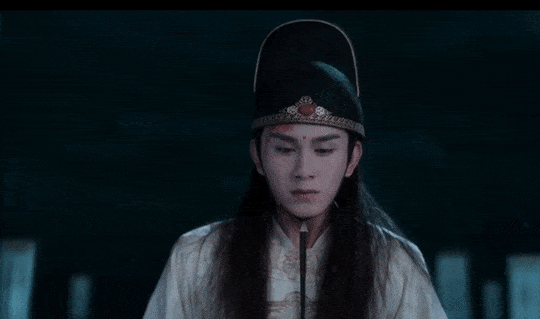
Your Honour, his hat’s worn straight! Surely he must be doing something right!
To wear one’s hat straight
This would connect Jin Guangyao’s motivations in the above scene where he straightens his hat after to that flashback that we have through Nie Huaisang — which takes us right back to the beginning with Meng Shi and Meng Yao.

Don’t you wish sometimes that a hat is just a hat?
Meng Shi quotes to Meng Yao: 君子 正衣冠 (junzi, zheng yi guan) — “A noble man rights his attire and hat.” This is an adaptation of a quote from Confucius’ Analects.
The full quote from the Analects goes:
君子正其衣冠,尊其瞻视,俨然人望而畏之,斯不亦威而不猛乎?
A noble man straightens his attire and hat, looks upon others with respect, stately in bearing — others gaze at him in awe, is this not the definition of awe-inspiring without being overbearing?
The gist of the discussion between Confucius and his disciple in this passage where this quote appears is how a noble man — a junzi — can earn the respect of others he needs to lead. A crucial part of that answer, according to Confucius, is to dress right. This, perhaps, was a lesson that Meng Shin wanted to impress upon Meng Yao, fully knowing how he will struggle for respect given his origins.
You can see also how seriously some people take this maxim — from how one of Confucius’s most treasured disciples, Zi Lu once infamously declared: 君子死,而冠不免. A junzi dies, but may not do without his hat.
Whereupon Zi Lu was run through with a sword. Because Zi Lu said those words while trying to put his hat properly back on…after it had fallen off while he was battling two other swordsmen…who were holding his Lord hostage during a rebellion — who certainly weren’t going to wait for him to finish dressing + monologuing.
For Zi Lu, if he lived with dignity as a junzi, then he was going to do so until the very end, even if it would cost him his life. For that he would need his hat. And Confucius grieved upon news of this death.
This notion of “straighten one’s attire and hat” is invoked as well in this saying by the first emperor and founder of the Tang Dynasty, Li Shimin:
铜为镜,可以正衣冠;以史为镜,可以知兴替;以人为镜,可以明得失
With bronze as a mirror, one can straighten one’s attire and hat; with history as a mirror, one can understand eras of rise and fall; with people as a mirror, one’s own shortcomings are illuminated
Again, one of the ideas here is setting things in place for future success, starting with one’s attire.
So when Meng Shi puts that hat upon A-Yao’s adorable head, she is impressing upon him the importance of carrying himself with dignity through maintaining his attire. If he gets this right, he may go on to do great things as a junzi, as well as live a life of virtue.

But above all, you can tell that it is Meng Shi’s way of showering care and worry for her son, and how she hopes that he’ll have a good life. After reciting that saying to A-Yao, she tells him so tenderly, “A-Yao, don’t you wear your hat crooked.” C:
How Jin Guangyao tries to meet these expectations of hers is in turn his expression of filial devotion to her.
Thus, Nie Huaisang picking up Jin Guangyao’s hat upon his passing is such a loaded moment. Jin Guangyao has literally 丢乌纱帽 — lost his wushamao (i.e. slang for losing one’s official position), along with his life. Yet Nie Huaisang’s response is not to trample upon his wushamao and thus the symbol of his dreams of dignity, glory, and love for his mother. Almost fondly, he recalls what must have been a story Jin Guangyao once told him about why it was so important for him to keep his hat straight, how it was inextricably tied to his feelings towards his mother.

But alas his hands are stained with the blood of Jin Guangyao.
Thus, hats off to CQL for introducing such an impactful plot device to the overall storyline.
Limitations:
The author of this paper is sleep deprived. Instead of sleeping, she decided, huh, today is April Fools. Wouldn’t it be funny if I made a joke about how I could write a thesis on JGY’s hat? And then after I wrote a few down the opening para that was supposed to be the entire post, I realised, oh rip. I have enough points that I can. My life is a joke. Let me do that with my remaining braincells - So cultural/historical corrections,,,are very welcome as I threw this up with minimal time for cross-checking,,,thank you,,,,,,
#jin guangyao#CQL#mdzs meta#mdzs metas#cql meta#cql metas#UNLEASHING MY BRAINWORMS#to be factchecked by the test of time#this is kind of a joke#because my mind is a joke
220 notes
·
View notes
Text
While it's admittedly a very useful meme, the "cool motive still murder" trend goes so counter to how I personally interact with fiction. It can be just because I love messed up characters but for me, having a cool motive is literally the most important thing a character can do in a story. Actually as far as I'm concerned, the murder part is there to be a vehicle through which the author gets to tell me all about the cool motive. I think all characters should get to commit atrocities as long as the atrocities are matched by or surpassed by the coolness of their motives (otherwise, it's just shock value and I don't get the point)
70 notes
·
View notes
Text
It takes two to do the horizontal tango, and I would like to point out the chef’s kiss perfection when Jiggy’s partner during said sexytimes enthusiastically consents to this particular arrangement
Consistently amused at the many different answers fanfiction finds to the question: "At what point does Jiggy remove the Hat when engaged in sexytimes?"
Consistently disturbed when the answer is: "Never."
#the Hat#sorry jiggy you know i love you inspite of your millinery choices#jin guangyao#jgy#jin guangyao's Hat
6 notes
·
View notes
Text
Sometimes I think about how Meng Yao/Jin Guangyao is perhaps the only character who can be sure and secure in the knowledge that his mother wanted and loved him.
Pretty much everyone else has either been orphaned when they were very young and/or born out of political/arranged marriages where having children is a duty.
Meng Yao was born to an unmarried low-class woman in prostitution, where pregnancy is activively avoided or aborted, babies given away or abandoned. So Meng Shi must have actively chosen to have her baby, and then she loved him, protected him and got him education to the best of her abilities, working tirelessly to get him a better life.
And then, that loving mother is the cruelest insult anyone can ever think of for him.
384 notes
·
View notes
Photo
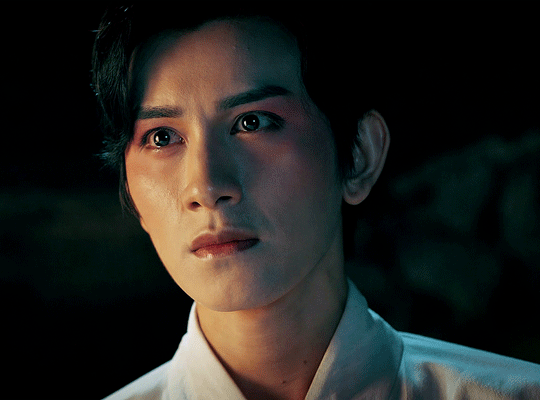

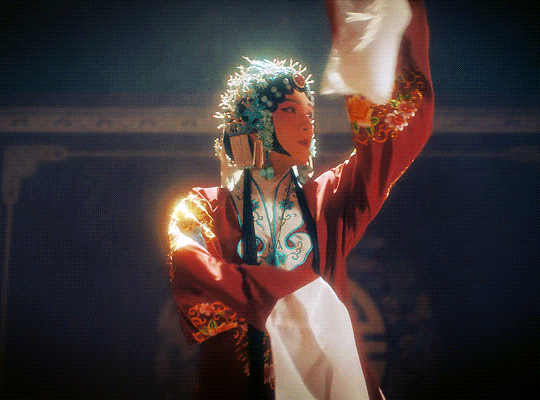
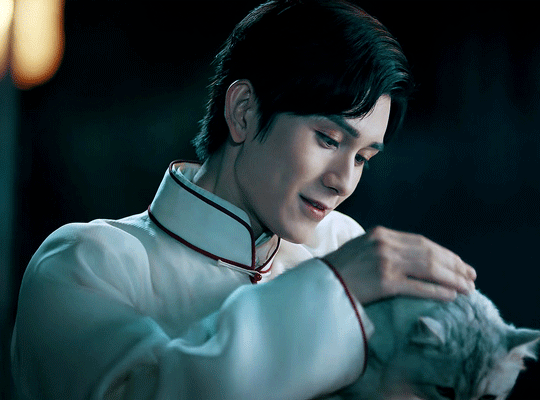

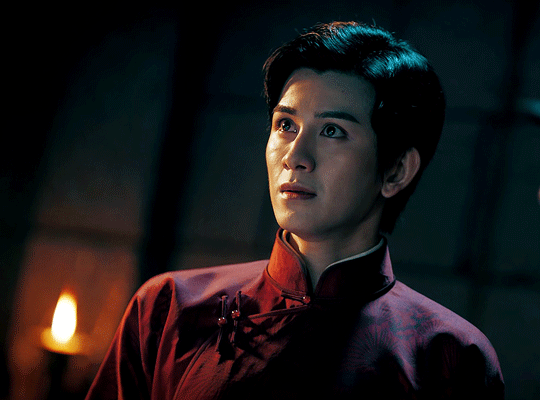

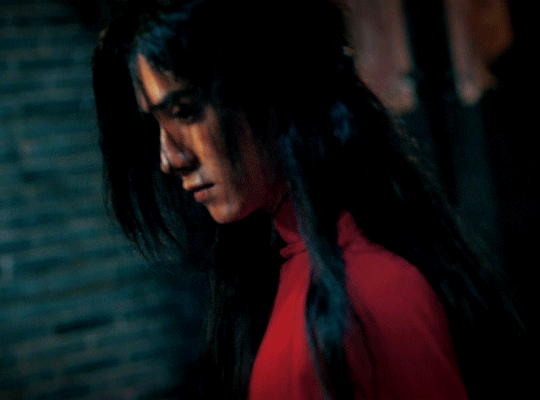
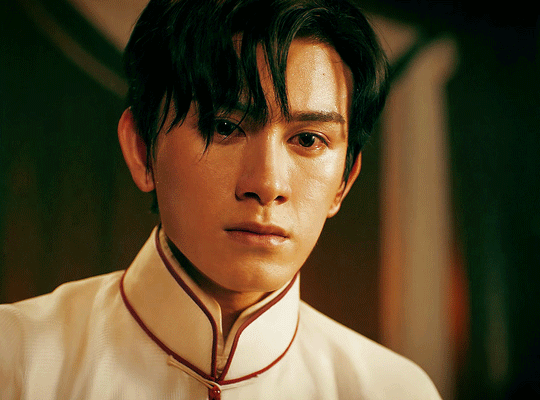
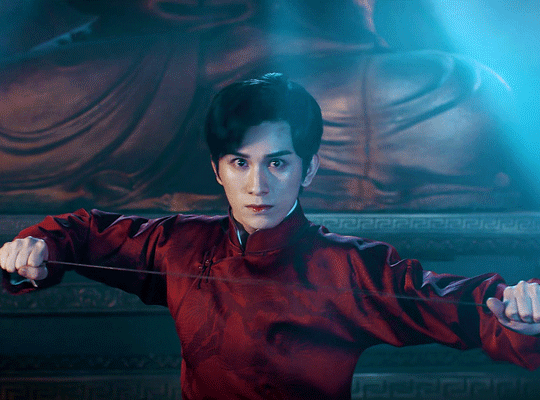
ZHU ZANJIN as ER YUEHONG
老九门之青山海棠 THE MYSTIC NINE: QING SHAN HAI TANG (2022)
1K notes
·
View notes
Photo

Art by chirido_san
Posted with Permission (reprint/edit and/or commercial use prohibited)
645 notes
·
View notes
Photo


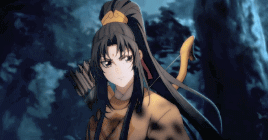



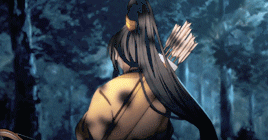
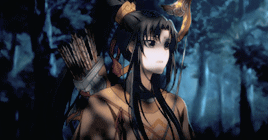
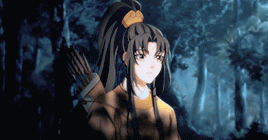

ɪ’ʟʟ ᴍᴀᴋᴇ ᴛʜᴇᴍ ᴏᴘᴇɴ ᴛʜᴇɪʀ ᴇʏᴇs ᴀɴᴅ sᴇᴇ ᴛʜᴀᴛ ɪ’ᴍ ᴍᴜᴄʜ ᴍᴏʀᴇ ᴘᴏᴡᴇʀғᴜʟ ᴛʜᴀɴ ᴀɴʏ ᴏғ ᴛʜᴇᴍ.
386 notes
·
View notes
Text
i love lan an. i love that the forehead ribbon is a sacred representation of one's self control and dignity and one cannot remove it carelessly or without purpose unless one is with their true love, in which case such virtues are meaningless. i love imagining lan an as a wistful, starry-eyed, lovestruck ex-monk and i love that the lan sect is based primarily on love. i love that despite how strict and ascetic the rules of the gusulan are, theoretically every single one of those can be violated for the sake of love. lan an really said love is real and it exists here in gusu, and how proud would he be to see his descendant having found a love so pure and true in someone who challenges even his loyalty to those very rules.
650 notes
·
View notes
Text
Realistically I know small children wouldn't be allowed to bother the Chief Cultivator, but let's pretend they were. Please indulge me in imagining JGY trying to work while being simultaneously bothered by baby A-Song who wants Daddy And Nobody Else Only Daddy Or He'll Cry, toddler A-Ling who isn't afraid to throw a tantrum to get Xiao-Shushu's attention, and Huaisang who's somehow worse than both the literal kids put together.
1K notes
·
View notes
Text
tips for choosing a Chinese name for your OC when you don’t know Chinese
This is a meta for gifset trade with @purple-fury! Maybe you would like to trade something with me? You can PM me if so!
Choosing a Chinese name, if you don’t know a Chinese language, is difficult, but here’s a secret for you: choosing a Chinese name, when you do know a Chinese language, is also difficult. So, my tip #1 is: Relax. Did you know that Actual Chinese People choose shitty names all the dang time? It’s true!!! Just as you, doubtless, have come across people in your daily life in your native language that you think “God, your parents must have been on SOME SHIT when they named you”, the same is true about Chinese people, now and throughout history. If you choose a shitty name, it’s not the end of the world! Your character’s parents now canonically suck at choosing a name. There, we fixed it!
However. Just because you should not drive yourself to the brink of the grave fretting over choosing a Chinese name for a character, neither does that mean you shouldn’t care at all. Especially, tip #2, Never just pick some syllables that vaguely sound Chinese and call it a day. That shit is awful and tbh it’s as inaccurate and racist as saying “ching chong” to mimic the Chinese language. Examples: Cho Chang from Harry Potter, Tenten from Naruto, and most notorious of all, Fu Manchu and his daughter Fah lo Suee (how the F/UCK did he come up with that one).
So where do you begin then? Well, first you need to pick your character’s surname. This is actually not too difficult, because Chinese actually doesn’t have that many surnames in common use. One hundred surnames cover over eighty percent of China’s population, and in local areas especially, certain surnames within that one hundred are absurdly common, like one out of every ten people you meet is surnamed Wang, for example. Also, if you’re making an OC for an established media franchise, you may already have the surname based on who you want your character related to. Finally, if you’re writing an ethnically Chinese character who was born and raised outside of China, you might only want their surname to be Chinese, and give them a given name from the language/culture of their native country; that’s very very common.
If you don’t have a surname in mind, check out the Wikipedia page for the list of common Chinese surnames, roughly the top one hundred. If you’re not going to pick one of the top one hundred surnames, you should have a good reason why. Now you need to choose a romanization system. You’ll note that the Wikipedia list contains variant spellings. If your character is a Chinese-American (or other non-Chinese country) whose ancestors emigrated before the 1950s (or whose ancestors did not come from mainland China), their name will not be spelled according to pinyin. It might be spelled according to Wade-Giles romanization, or according to the name’s pronunciation in other Chinese languages, or according to what the name sounds like in the language of the country they immigrated to. (The latter is where you get spellings like Lee, Young, Woo, and Law.) A huge proportion of emigration especially came from southern China, where people spoke Cantonese, Min, Hakka, and other non-Mandarin languages.
So, for example, if you want to make a Chinese-Canadian character whose paternal source of their surname immigrated to Canada in the 20s, don’t give them the surname Xie, spelled that way, because #1 that spelling didn’t exist when their first generation ancestor left China and #2 their first generation ancestor was unlikely to have come from a part of China where Mandarin was spoken anyway (although still could have! that’s up to you). Instead, name them Tse, Tze, Sia, Chia, or Hsieh.
If you’re working with a character who lives in, or who left or is descended from people who left mainland China in the 1960s or later; or if you’re working with a historical or mythological setting, then you are going to want to use the pinyin romanization. The reason I say that you should use pinyin for historical or mythological settings is because pinyin is now the official or de facto romanization system for international standards in academia, the United Nations, etc. So if you’re writing a story with characters from ancient China, or medieval China, use pinyin, even though not only pinyin, but the Mandarin pronunciations themselves didn’t exist back then. Just… just accept this. This is one of those quirks of having a non-alphabetic language.
(Here’s an “exceptions” paragraph: there are various well known Chinese names that are typically, even now, transliterated in a non-standard way: Confucius, Mencius, the Yangtze River, Sun Yat-sen, etc. Go ahead and use these if you want. And if you really consciously want to make a Cantonese or Hakka or whatever setting, more power to you, but in that case you better be far beyond needing this tutorial and I don’t know why you’re here. Get. Scoot!)
One last point about names that use the ü with the umlaut over it. The umlaut ü is actually pretty critical for the meaning because wherever the ü appears, the consonant preceding it also can be used with u: lu/lü, nu/nü, etc. However, de facto, lots of individual people, media franchises, etc, simply drop the umlaut and write u instead when writing a name in English, such as “Lu Bu” in the Dynasty Warriors franchise in English (it should be written Lü Bu). And to be fair, since tones are also typically dropped in Latin script and are just as critical to the meaning and pronunciation of the original, dropping the umlaut probably doesn’t make much difference. This is kind of a choice you have to make for yourself. Maybe you even want to play with it! Maybe everybody thinks your character’s surname is pronounced “loo as in loo roll” but SURPRISE MOFO it’s actually lü! You could Do Something with that. Also, in contexts where people want to distinguish between u and ü when typing but don’t have easy access to a keyboard method of making the ü, the typical shorthand is the letter v.
Alright! So you have your surname and you know how you want it spelled using the Latin alphabet. Great! What next?
Alright, so, now we get to the hard part: choosing the given name. No, don’t cry, I know baby I know. We can do this. I believe in you.
Here are some premises we’re going to be operating on, and I’m not entirely sure why I made this a numbered list:
Chinese people, generally, love their kids. (Obviously, like in every culture, there are some awful exceptions, and I’ll give one specific example of this later on.)
As part of loving their kids, they want to give them a Good name.
So what makes a name a Good name??? Well, in Chinese culture, the cultural values (which have changed over time) have tended to prioritize things like: education; clan and family; health and beauty; religious devotions of various religions (Buddhism, Taoism, folk religions, Christianity, other); philosophical beliefs (Buddhism, Confucianism, etc) (see also education); refinement and culture (see also education); moral rectitude; and of course many other things as the individual personally finds important. You’ll notice that education is a big one. If you can’t decide on where to start, something related to education, intelligence, wisdom, knowledge, etc, is a bet that can’t go wrong.
Unlike in English speaking cultures (and I’m going to limit myself to English because we’re writing English and good God look at how long this post is already), there is no canon of “names” in Chinese like there has traditionally been in English. No John, Mary, Susan, Jacob, Maxine, William, and other words that are names and only names and which, historically at least, almost everyone was named. Instead, in Chinese culture, you can basically choose any character you want. You can choose one character, or two characters. (More than two characters? No one can live at that speed. Seriously, do not give your character a given name with more than two characters. If you need this tutorial, you don’t know enough to try it.) Congratulations, it is now a name!!
But what this means is that Chinese names aggressively Mean Something in a way that most English names don’t. You know nature names like Rose and Pearl, and Puritan names like Wrestling, Makepeace, Prudence, Silence, Zeal, and Unity? I mean, yeah, you can technically look up that the name Mary comes from a etymological root meaning bitter, but Mary doesn’t mean bitter in the way that Silence means, well, silence. Chinese names are much much more like the latter, because even though there are some characters that are more common as names than as words, the meaning of the name is still far more upfront than English names.
So the meaning of the name is generally a much more direct expression of those Good Values mentioned before. But it gets more complicated!
Being too direct has, across many eras of Chinese history, been considered crude; the very opposite of the education you’re valuing in the first place. Therefore, rather than the Puritan slap you in the face approach where you just name your kid VIRTUE!, Chinese have typically favoured instead more indirect, related words about these virtues and values, or poetic allusions to same. What might seem like a very blunt, concrete name, such as Guan Yu’s “yu” (which means feather), is actually a poetic, referential name to all the things that feathers evoke: flight, freedom, intellectual broadmindness, protection…
So when you’re choosing a name, you start from the value you want to express, then see where looking up related words in a dictionary gets you until you find something that sounds “like a name”; you can also try researching Chinese art symbolism to get more concrete names. Then, here’s my favourite trick, try combining your fake name with several of the most common surnames: 王,李,陈. And Google that shit. If you find Actual Human Beings with that name: congratulations, at least if you did f/uck up, somebody else out there f/ucked up first and stuck a Human Being with it, so you’re still doing better than they are. High five!
You’re going to stick with the same romanization system (or lack thereof) as you’ve used for the surname. In the interests of time, I’m going to focus on pinyin only.
First let’s take a look at some real and actual Chinese names and talk about what they mean, why they might have been chosen, and also some fictional OC names that I’ve come up with that riff off of these actual Chinese names. And then we’ll go over some resources and also some pitfalls. Hopefully you can learn by example! Fun!!!

Let’s start with two great historical strategists: Zhuge Liang and Zhou Yu, and the names I picked for some (fictional) sons of theirs. Then I will be talking about Sun Shangxiang and Guan Yinping, two historical-legendary women of the same era, and what I named their fictional daughters. And finally I’ll be talking about historical Chinese pirate Gan Ning and what I named his fictional wife and fictional daughter. Uh, this could be considered spoilers for my novel Clouds and Rain and associated one-shots in that universe, so you probably want to go and read that work… and its prequels… and leave lots of comments and kudos first and then come back. Don’t worry, I’ll wait.
(I’m just kidding you don’t need to know a thing about my work to find this useful.)

Keep reading
38K notes
·
View notes
Text
i love when tragedies are like “the love was there. it didnt change anything. it didnt save anyone. there were just too many forces against it. but it still matters that the love was there”
201K notes
·
View notes



